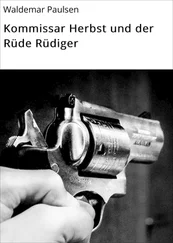He had to fly it somehow. Had to fly the plane. He had to help himself. The pilot was gone, beyond anything he could do. He had to try and fly the plane.
He turned back in the seat, feeing the front, and put his hands — still trembling — on the control wheel, his feet gently on the rudder pedals. You pulled back on the stick to raise the plane, he knew that from reading. You always pulled back on the wheel. He gave it a tug and it slid back toward him easily. Too easily. The plane, with the increased speed from the tilt down, swooped eagerly up and drove Brian's stomach down. He pushed the wheel back in, went too far this time, and the plane's nose went below the horizon and the engine speed increased with the shallow dive.
Too much.
He pulled back again, more gently this time, and the nose floated up again, too far but not as violently as before, then down a bit too much, and up again, very easily, and the front of the engine cowling settled. When he had it aimed at the horizon and it seemed to be steady, he held the wheel where it was, let out his breath — which he had been holding all this time — and tried to think what to do next.
It was a clear, blue-sky day with fluffy bits of clouds here and there and he looked out the window for a moment, hoping to see something, a town or village, but there was nothing. Just the green of the trees, endless green, and lakes scattered more and more thickly as the plane flew — where?
He was flying but did not know where, had no idea where he was going. He looked at the dashboard of the plane, studied the dials and hoped to get some help, hoped to find a compass, but it was all so confusing, a jumble of numbers and lights. One lighted display in the top center of the dashboard said the number 342, another next to it said 22. Down beneath that were dials with lines that seemed to indicate what the wings were doing, tipping or moving, and one dial with a needle pointing to the number 70, which he thought — only thought — might be the altimeter. The device that told him his height above the ground. Or above sea level. Somewhere he had read something about altimeters but he couldn't remember what, or where, or anything about them.
Slightly to the left and below the altimeter he saw a small rectangular panel with a lighted dial and two knobs. His eyes had passed over it two or three times before he saw what was written in tiny letters on top of the panel. TRANSMITTER 221, was stamped in the metal and it hit him, finally, that this was the radio.
The radio. Of course. He had to use the radio. When the pilot had — had been hit that way (he couldn't bring himself to say that the pilot was dead, couldn't think it), he had been trying to use the radio.
Brian looked to the pilot. The headset was still on his head, turned sideways a bit from his jamming back into the seat, and the microphone switch was clipped into his belt.
Brian had to get the headset from the pilot. Had to reach over and get the headset from the pilot or he would not be able to use the radio to call for help. He had to reach over…
His hands began trembling again. He did not want to touch the pilot, did not want to reach for him. But he had to. Had to get the radio. He lifted his hands from the wheel, just slightly, and held them waiting to see what would happen. The plane flew on normally, smoothly.
All right, he thought. Now. Now to do this thing. He turned and reached for the headset, slid it from the pilot's head, one eye on the plane, waiting for it to dive. The headset came easily, but the microphone switch at the pilot's belt was jammed in and he had to pull to get it loose. When he pulled, his elbow bumped the wheel and pushed it in and the plane started down in a shallow dive. Brian grabbed the wheel and pulled it back, too hard again, and the plane went through another series of stomach-wrenching swoops up and down before he could get it under control.
When things had settled again he pulled at the mike cord once more and at last jerked the cord free. It took him another second or two to place the headset on his own head and position the small microphone tube in front of his mouth. He had seen the pilot use it, had seen him depress the switch at his belt, so Brian pushed the switch in and blew into the mike.
He heard the sound of his breath in the headset. "Hello! Is there anybody listening on this? Hello…"
He repeated it two or three times and then waited but heard nothing except his own breathing.
Panic came then. He had been afraid, had been stopped with the terror of what was happening, but now panic came and he began to scream into the microphone, scream over and over.
"Help! Somebody help me! I'm in this plane and don't know… don't know… don't know…"
And he started crying with the screams, crying and slamming his hands against the wheel of the plane, causing it to jerk down, then back up. But again, he heard nothing but the sound of his own sobs in die microphone, his own screams mocking him, coming back into his ears.
The microphone. Awareness cut into him. He had used a CB radio in his uncle's pickup once. You had to turn the mike switch off to hear anybody else. He reached to his belt and released die switch.
For a second all he heard was the whusssh of the empty air waves. Then, through the noise and static he heard a voice.
"Whoever is calling on this radio net, I repeat, release your mike switch — you are covering me. You are covering me. Over."
It stopped and Brian hit his mike switch. "I hear you! I hear you. This is me…!" He released the switch.
"Roger. I have you now." The voice was very faint and breaking up. "Please state your difficulty and location. And say over to signal end of transmission. Over."
Please state my difficulty, Brian thought. God. My difficulty. "I am in a plane with a pilot who is — who has had a heart attack or something. He is — he can't fly. And I don't know how to fly. Help me. Help…" He turned his mike off without ending transmission properly.
There was a moment's hesitation before the answer. 'Tour signal is breaking up and I lost most of it. Understand… pilot… you can't fly. Correct? Over."
Brian could barely hear him now, heard mostly noise and static. "That's right. I can't fly. The plane is flying now but I don't know how much longer. Over."
"… lost signal. Your location please. Flight number… location… ver."
"I don't know my flight number or location. I don't know anything. I told you that, over."
He waited now, waited but there was nothing. Once, for a second, he thought he heard a break in the noise, some part of a word, but it could have been static. Two, three minutes, ten minutes, the plane roared and Brian listened but heard no one. Then he hit the switch again.
"I do not know the flight number. My name is Brian Robeson and we left Hampton, New York headed for the Canadian oil fields to visit my father and I do not know how to fly an airplane and the pilot…"
He let go of the mike. His voice was starting to rattle and he felt as if he might start screaming at any second. He took a deep breath. "If there is anybody listening who can help me fly a plane, please answer."
Again he released the mike but heard nothing but the hissing of noise in the headset. After half an hour of listening and repeating the cry for help he tore the headset off in frustration and threw it to the floor. it all seemed so hopeless. Even if he did get somebody, what could anybody do? Tell him to be careful?
All so hopeless.
He tried to figure out the dials again. He thought he might know which was speed — it was a lighted number that read 160—but he didn't know if that was actual miles an hour, or kilometers, Or if it just meant how fast the plane was moving through the air and not over the ground. He knew airspeed was different from groundspeed but not by how much.
Читать дальше












